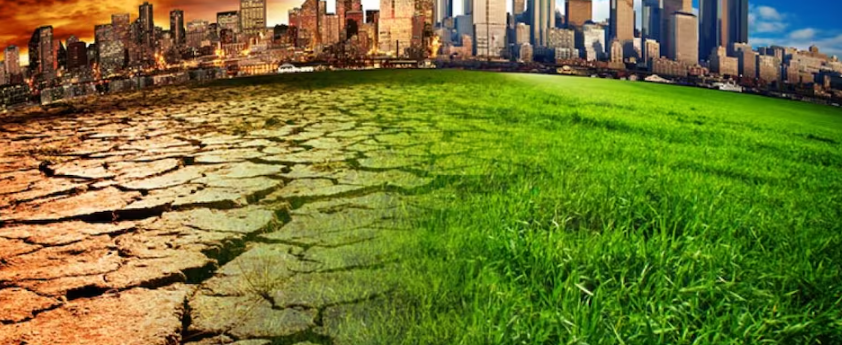Over 90% Indians Want Green Policies, Climate Action (GS Paper 2, Government Policies)

Context
- A recent study titled “Climate Change in the Indian Mind, 2023” reveals a significant concern among Indians regarding climate change.
- Conducted by the Yale Program on Climate Change Communication and the Centre for Voting Opinion & Trends in Election Research (CVoter) during September and October 2023, the study highlights that 91% of respondents acknowledge the reality of global warming.
Public Perception and Concern
- The study underscores widespread apprehension about the impacts of climate change. Notably, 59% of respondents express being “very worried” about the phenomenon.
- Moreover, 52% attribute global warming primarily to human activities, while 38% attribute it to natural environmental changes.
Perceived Risks and Effects
- Concerns about the risks associated with global warming are prevalent, with 83% believing it will adversely affect plants and animals, and 82% expressing fear for Indian citizens.
- A significant portion of the population anticipates severe weather events such as extreme heatwaves and storms.
- Additionally, 71% perceive a substantial impact of global warming on local weather, while 76% believe it significantly affects the monsoon season.
Policy Support and Governmental Expectations
- The study indicates strong public opinion regarding governmental action on climate change, with over 78% of respondents advocating for more aggressive measures from the Indian government.
- Furthermore, approximately 86% express strong support for policies aiming to achieve Net Zero emissions by 2070, aligning with commitments made at the 26th UN Climate Change Conference.
Additional Insights on Climate Change Awareness
The study provides supplementary information on various aspects of climate change awareness:
- Thwaites Glacier, colloquially termed the “Doomsday Glacier,” is melting rapidly, posing significant threats to global sea levels.
- Ocean acidification, attributed to higher CO2 levels since the Industrial Revolution, has increased by approximately 30%, impacting marine ecosystems.
- Arctic regions are experiencing greening due to rising temperatures, facilitating the growth of shrubs and trees.
- Solar dimming projects, such as injecting light-reflecting particles into the stratosphere, aim to mitigate global warming effects.
- Despite global agreements like the Paris Agreement, only a few countries are on track to meet their CO2 emission targets.
- Climate refugees, projected to become a substantial crisis, may face displacement due to severe weather events by 2050.
- The significance of CO2 absorption by trees contrasts with human emissions, which total about 33 billion tons annually.
- Climate education remains limited, with less than 6% of schoolchildren receiving comprehensive instruction as of 2021.
- Increasingly frequent and severe heatwaves claim more lives annually compared to other weather-related events.
- Climate change-induced disruptions could cost global economies $23 trillion by 2050, primarily due to extreme weather and agricultural challenges.


